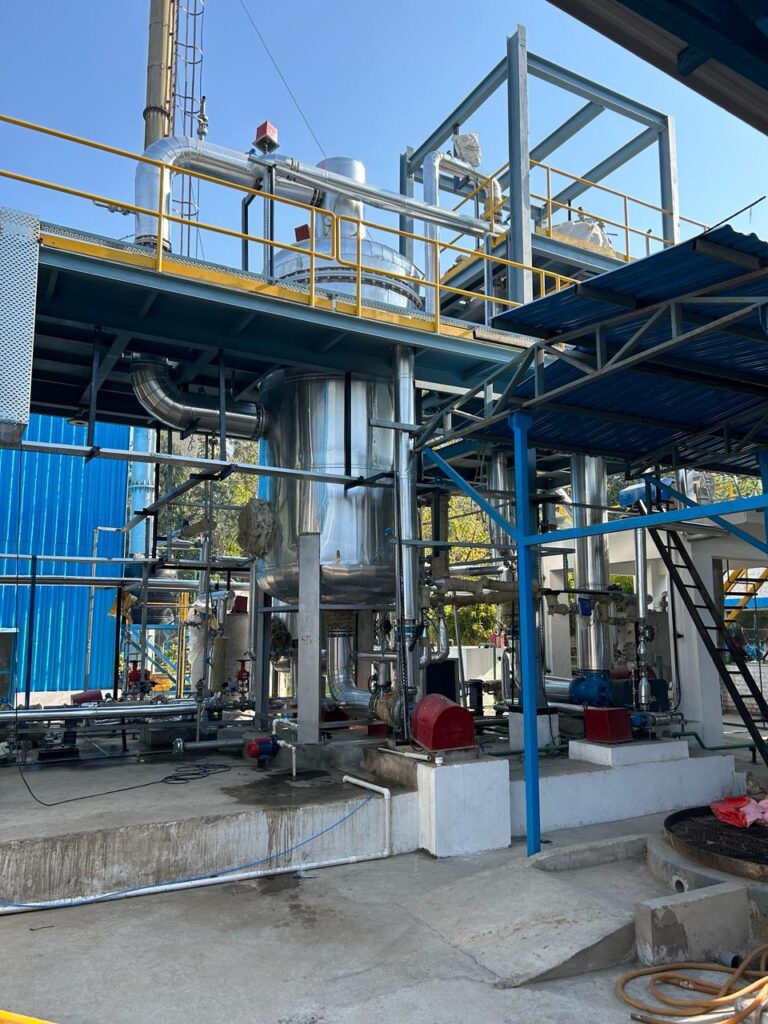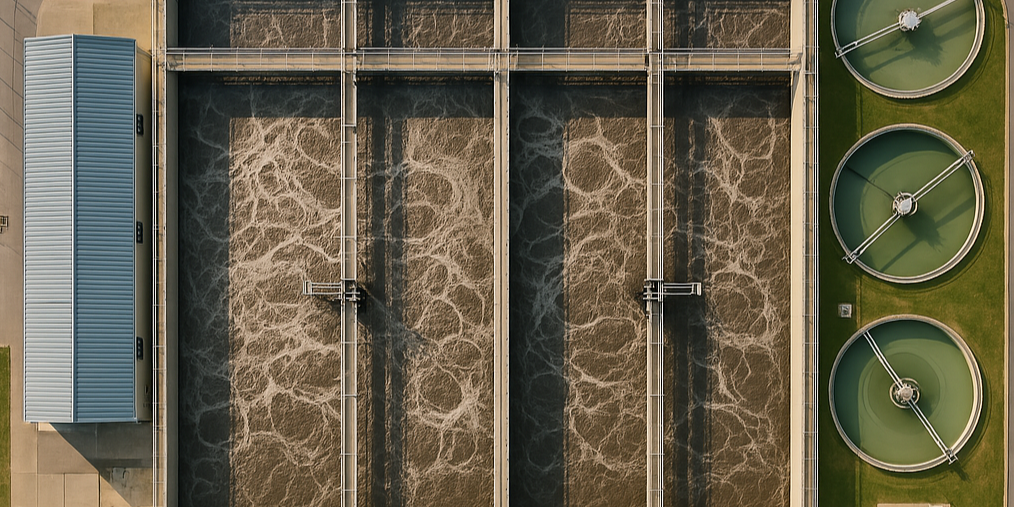Working Principle : Mechanical Vapour Recompression (MVR)
In the realm of water treatment and Zero Liquid Discharge (ZLD) systems, Mechanical Vapour Recompression (MVR) stands out as a pivotal technology that enables efficient and sustainable water management practices. MVR plays a crucial role in minimizing wastewater discharge by effectively concentrating solutions and recovering valuable resources, all while reducing energy consumption compared to conventional methods.
Principle of Operation
At its core, MVR operates on the principle of utilizing mechanical energy to compress and elevate the temperature and pressure of vapour streams. This compressed vapour, with its increased thermal energy, is then used to heat the incoming feed solution or concentrate, facilitating evaporation. By reusing the latent heat from the vapour, MVR significantly reduces the energy input required for the evaporation process, making it highly energy-efficient.

Key Components
1. Compressor: The heart of the MVR system, the compressor, is responsible for compressing the vapour generated from the evaporation process. This compression raises the temperature and pressure of the vapour to a level where it can be utilized for heating purposes.
2. Heat Exchanger: Heat exchangers are crucial in MVR systems for transferring thermal energy from the compressed vapour to the incoming feed solution or concentrate. This exchange allows the vapour to condense, releasing its latent heat, which is then used to evaporate water from the solution.
3. Condenser: After transferring its heat to the feed solution, the vapour condenses back into liquid form in the condenser. This condensation releases additional heat, which can be recovered and used to preheat incoming streams, further improving energy efficiency.
4. Evaporator: The evaporator chamber is where the feed solution or concentrate undergoes phase change from liquid to vapour. The vapour produced here is what eventually gets compressed and recycled through the system.
Advantages of MVR
– Energy Efficiency: MVR systems typically require lower energy input compared to thermal evaporators due to the reuse of latent heat from the vapour stream.
– Environmental Impact: By minimizing wastewater discharge, MVR contributes to environmental sustainability by conserving water resources and reducing pollution.
– Scalability: MVR systems are versatile and can be scaled to suit various industrial applications, from small-scale operations to large industrial plants.
– Cost Savings: Although initial investment costs may be higher, the reduced energy consumption and operational costs over time often result in significant savings.
Applications in Water Treatment and ZLD
MVR finds extensive use in industries requiring water treatment and ZLD solutions, such as:
– Desalination Plants: MVR is employed in multi-effect distillation (MED) and multi-stage flash (MSF) desalination processes to concentrate brine and reduce energy consumption.
– Chemical and Pharmaceutical Industries: MVR is utilized to concentrate wastewater streams containing valuable chemicals, enabling their recovery and reuse.
– Food and Beverage Sector: MVR aids in concentrating food and beverage processing effluents, reducing disposal costs and enhancing sustainability.
Future Outlook
As global water scarcity intensifies and environmental regulations become more stringent, the demand for efficient water treatment technologies like MVR is expected to rise. Advances in compressor technology, heat exchange efficiency, and system integration will further enhance the performance and applicability of MVR systems across various industries.
In conclusion, Mechanical Vapour Recompression (MVR) represents a cornerstone technology in the quest for sustainable water management practices. By harnessing the power of mechanical energy to recycle thermal energy, MVR systems exemplify the marriage of engineering innovation and environmental responsibility in modern water treatment and ZLD strategies.
Keywords: MVR evaporator working principle, mechanical vapour recompression, water treatment technology, ZLD systems, sustainable water management, energy-efficient evaporation, compressor technology, heat exchange efficiency




